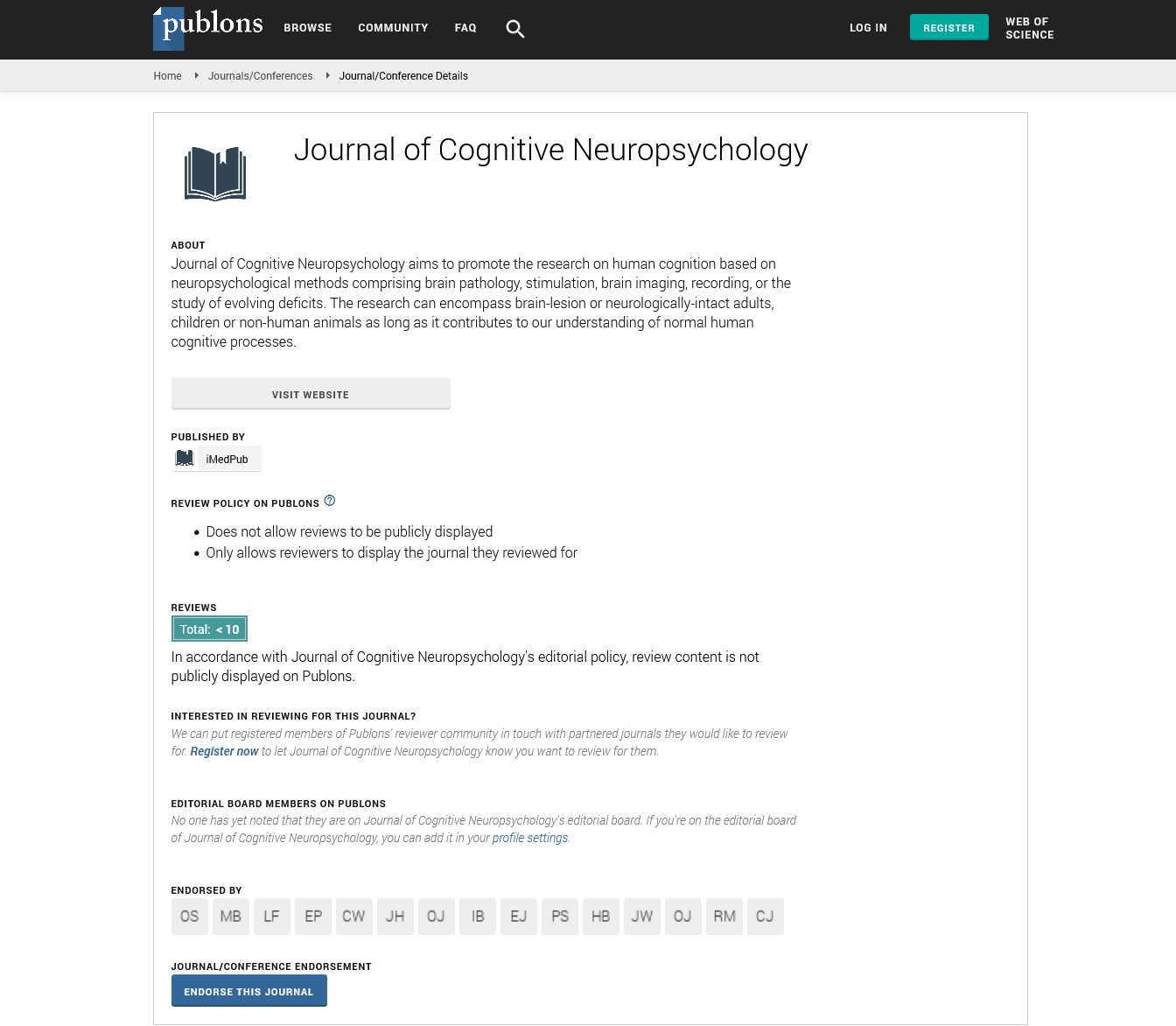Bacterial FliC and DING proteins in Alzheimer's disease and Mild Cognitive Impairment and correlation with neurodegeneration and inflammation markers
17th World Congress on Vascular Dementia and Neurodegenerative Diseases
April 12, 2021 Webinar
Andreadou E, Katsipis G, Tsolaki M, Pantazaki A
Laboratory of Biochemistry, Department of Chemistry, Aristotle University of Thessaloniki, 54124 Thessaloniki, Greece, First Neurology Department, “AHEPA” University General Hospital of Thessaloniki, Aristotle University of Thessaloniki, 54124 Thessaloniki, Greece, Greek Association of Alzheimer’s Disease and Related Disorders – GAADRD Center for Interdisciplinary Research and Innovation, Laboratory of Neurodegenerative Diseases (LND), AUTH
ScientificTracks Abstracts: Jour Cogn Neuropsy
Abstract
The pathology of Alzheimer’s disease (AD) and Mild Cognitive Impairment (MCI) has been linked to inflammation due to microbiome, mainly originating from the oral cavity and intestine. The goal of this research was to estimate the levels of the bacterial proteins, FliC and DING, in cerebrospinal fluid (CSF) and their correlation with neurodegeneration and inflammation markers. FliC is the main structural component of flagella that many bacteria develop serving their motility and then flagellar shedding follows after entry into host. Multidrug-resistant strains of Pseudomonas aeruginosa from critically ill patients can form unusual outer-surface appendages harboring DING proteins, which have been related with many human diseases. FliC and DING levels were evaluated in CSF of 54 AD and 47 MCI patients compared to 23 cognitive healthy individuals, using indirect ELISA. Additionally, the inflammatory biomarkers COX-1 and COX-2, and the AD hallmarks, Αβ42 and tau, were measured as well. FliC and DING proteins were found increased in CSF of AD patients compared to the control group, while FliC levels of MCI patients were also elevated in comparison with the cognitive healthy individuals. FliC and DING levels in CSF positively correlate with each other. Multi-linear regression analysis proves that DING is a significant determinant of FliC levels in CSF and vice-versa. FliC and DING proteins also correlate positively with Aβ42, tau, COX-1 and COX-2 in CSF. Multilinear regression analysis proves that COX-2 is a crucial determinant of both FliC and DING levels and COX-1 is a crucial determinant of DING levels in CSF.
Biography
Dr Andreadou Eleni obtained a PhD in Biochemistry at the Biochemistry Laboratory of Chemical Department of Aristotle University of Thessaloniki. She is quite experienced on various research topics including Alzheimer’s disease. She has participated in 5 research programs and she has 11 publications in international journals and 13 participations in conferences. Nowadays she is a postdoctoral researcher in Biochemistry Lab of Chemical Department of AUTH in a research funded by the ΕΔΒΜ103 Program (MIS 5047901) cofinanced by the European Union (European Social Fund – ESF) and Greek national funds through the Operational Program “Human Resources Development, Education and Lifelong Learning 2014-2020”. Funding: This research entitled “Investigation study on the contribution of inflammatory bacterial components to Alzheimer’s disease” was funded by the ΕΔΒΜ103 Program (MIS 5047901) co-financed by the European Union (European Social Fund – ESF) and Greek national funds through the Operational Program “Human Resources Development, Education and Lifelong Learning 2014-2020”
Google Scholar citation report
Citations : 8
Journal of Cognitive Neuropsychology received 8 citations as per Google Scholar report
Journal of Cognitive Neuropsychology peer review process verified at publons
Abstracted/Indexed in
- Google Scholar
- Publons
- MIAR
Open Access Journals
- Aquaculture & Veterinary Science
- Chemistry & Chemical Sciences
- Clinical Sciences
- Engineering
- General Science
- Genetics & Molecular Biology
- Health Care & Nursing
- Immunology & Microbiology
- Materials Science
- Mathematics & Physics
- Medical Sciences
- Neurology & Psychiatry
- Oncology & Cancer Science
- Pharmaceutical Sciences
